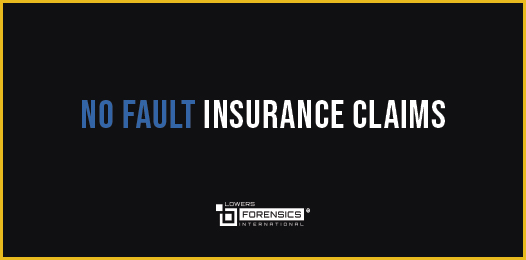No-fault drivers’ insurance is optional in many states, but many solopreneurs and self-employed workers choose to add this type of coverage because of the unique protection it provides. Unlike other motor vehicle policies, no-fault insurance can reimburse accident victims for medical expenses and loss of business income from a covered incident.
To help you better understand the unique opportunities and challenges associated with no-fault insurance claims, we offer our answers to the following frequently asked questions.
Q. What is no-fault insurance?
A. The term “no-fault” insurance varies from state to state and is sometimes referred to as Personal Injury Protection (PIP) insurance. Broadly speaking, it covers the driver and passengers’ medical expenses and loss of income from a covered accident, regardless of who is found at fault. It’s designed to pay personal injury claims as well as to reduce the monetary costs associated with litigation.
Some states have mandatory no-fault insurance requirements. In others, business owners can purchase PIP-type coverage in addition to regular liability coverage. As a side note, some states require that medical expenses incurred in an accident are covered by medical insurance, not no-fault insurance.
Q. Why would self-employed workers consider carrying a no-fault insurance policy?
A. A self-employed worker is someone who either owns a business or works for themselves, rather than receives a regular paycheck from an outside employer. In the event of a serious accident, the earnings they generate may go away entirely. Other times, the insured may continue to operate the business in a more limited capacity, or they may have to utilize employees, contractors, or temporary workers (often referred to as substitute employees). No-fault insurance is an added safety net that can cover medical expenses and lost earnings should one of these scenarios occur.
Q. What is the role of a Forensic Accountant in a no-fault claim?
A. When an insured party files a claim, there are a variety of financial complexities that a Forensic Accountant (FA) is uniquely qualified to handle. During the claims process, accountants may represent the insured, the insurer, attorneys, or other parties involved in the accident.
A FA has the requisite skills to analyze a wide range of documentation, including tax returns, profit and loss statements, and payroll reports. For instance, when a business owner loses sales revenue due to an accident, there are typically variable expenses that will cease and other fixed expenses that will continue. In other cases, the claim may require a projected calculation of lost self-employment earnings or substitute wages, which vary from case to case depending on the type of business, the policy limits, and duration of the claim.
A FA knows what documentation to request, how to analyze the data, to translate the findings into quantifiable losses, and clearly convey findings to all involved parties. This ability to communicate is integral during the claim process, which is highlighted by objectively exchanging vital information with all parties involved and further, serving as a liaison to arbitrators, when needed.
Q. Is there anything else noteworthy about no-fault insurance?
A. Fraud is a growing concern with no-fault insurers and has driven up costs in the industry. Fraudsters have capitalized on the ease for drivers to receive payments for both medical and lost income claims; fraudsters fake injuries, stage accidents, inflate medical costs, and alter their income reports.
According to Ed Leefeldt, from MoneyWatch, Southern Florida and New York City have a significant number of fraudulent claims related to no-fault/PIP insurance. Nationwide, there has been an estimated $8 billion lost to fraud, and 18 percent of PIP cases had “the appearance of fraud.”
When there is suspicion of fraud, a FA is invaluable in validating actual losses and assessing the claimant’s pre-accident financial condition.
Forensics Accounting and No-Fault Insurance Go Hand-in-Hand
When a no-fault insurance claim includes loss of income, is complex, or appears fraudulent, the education, skills, and expertise of a Forensic Accountant is invaluable. They can accurately interpret the financial data, exhibit an understanding of contracts and policies, verify documentation, and deliver fact-based evidence to the settlement table. To learn more, reach out to any one of our international team of forensic professionals.
